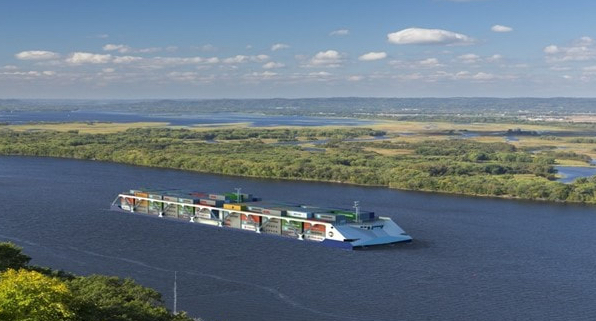MARAD expands America’s Marine Highway Program

The US Department of Transportation’s Maritime Administration (MARAD) is expanding the America’s Marine Highway Program (AMHP) with new routes, designations and extensions in Illinois, Michigan, Wisconsin, Alaska, Hawaii, Washington, California and Oregon.
The AMHP supports the increased use of navigable waterways to relieve landside congestion, provide new and efficient transportation options, and increase the productivity of the surface transportation system.
“Investments in the America’s Marine Highway Program help us move more goods more quickly and more efficiently to the American people, supporting our supply chains even while they continue to come under pressure from pandemic-driven disruptions,” said US Secretary of Transportation Pete Buttigieg. “Today’s announcements are an important step in the Administration’s Port Action Plan to strengthen our supply chains, modernize port operations, and combat inflation.”
Since its inception in 2014, the AMHP has designated 54 marine highway projects. A marine highway project is a planned service, or expansion of an existing service, on a designated marine highway route. A marine highway route is a navigable waterway, capable of transporting freight, located in the US or its territories. Since 2010, 29 marine highway routes have been designated.
The additions this week include one new marine highway route, two new marine highway projects, and one project designation extension.
The Kaskaskia River in Illinois, the state’s second-longest river, has been designated a new marine highway route.
The first of two new marine highway projects will support an existing ferry service on Lake Michigan between Ludington, Michigan, and Manitowoc, Wisconsin that provides vehicles a shortcut to avoid a busy route near Chicago and reduces CO2 emissions.
The second project, dubbed the Northwest Connect, will serve the marine highway route transporting containerised freight to and from Alaska, Hawaii and Washington. The domestic services included in this project designation are estimated to save almost $1.6bn in emissions damages alone compared with what would be incurred if the same amount of cargo were to move by truck, in the case of Alaska, or by airplane, in the case of Hawaii.
A project designation extension has been granted to a project at the Port of San Diego.
